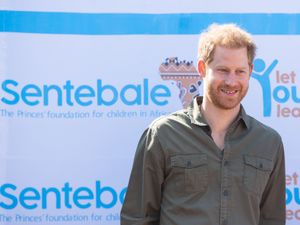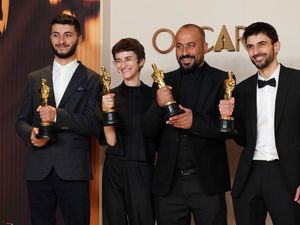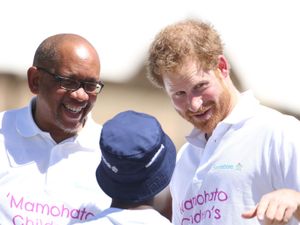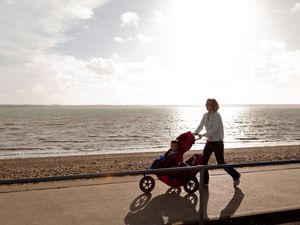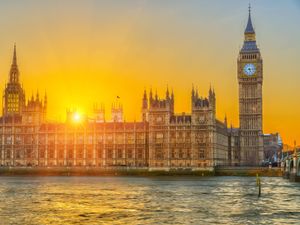Stephen Fry ‘startled and enchanted’ with knighthood in New Year Honours
He has been recognised for services to mental health awareness, the environment and to charity.
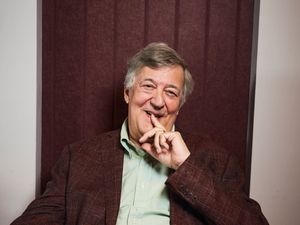
Stephen Fry said he is “startled and enchanted” to be awarded a knighthood in the New Year Honours and hopes it sets an example that there is “always hope”.
The actor, screenwriter and author is being recognised for services to mental health awareness, the environment and to charity.
Sir Stephen, 67, has been president of the charity Mind since 2011 and since 2009 has been Vice-President of conservation charity Fauna and Flora International.
The actor and writer told the PA news agency he was “startled and enchanted” after receiving the letter informing him of the knighthood, adding: “It did come out of the blue.”
Since 1991, the Blackadder star and former QI host has also worked with the Terence Higgins Trust, raising awareness and funds for people with HIV and Aids.
In 2006 he fronted BBC programme Stephen Fry’s The Secret Life Of The Manic Depressive and has been open about his struggles with mental illness – he has bipolar disorder – over the years.
Bipolar disorder is a mental health condition that leads to extreme changes in mood and energy levels which are far beyond most people’s experiences of feeling happy or down.
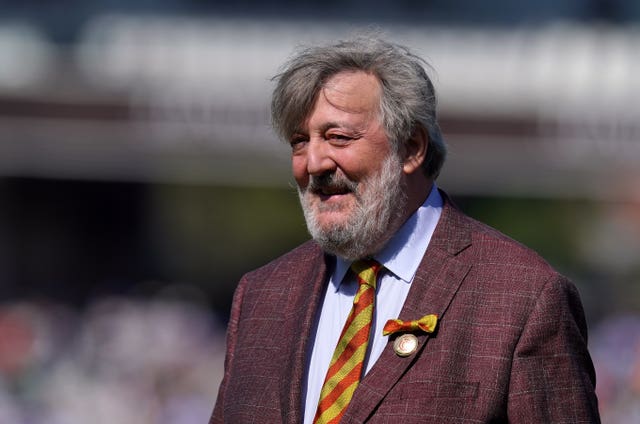
He told PA it was “wonderful” to see the charities also being recognised, adding: “What I feel very proud of doing and very pleased to be able to do… because it goes all the way back to my own terrible, worst kind of experiences of what a mental health illness, mental illness can do to one, how it can completely ruin one’s life, one’s happiness, one’s sense of self.
“And how without diagnosis and help and recognition, one can think one is a cursed individual and that there is something deeply wrong with one as a person, which we never think if you’re an asthmatic or a diabetic or have some other chronic illness.
“You don’t think that makes me a bad person, but because our mind is what supposedly controls our speech and our behaviour and our characteristics, it’s all too easy to think that a mental illness is somehow something deeper and more to do with a failure inside.
“It’s an incredibly important field and everybody from the King and his children have made it part of their work to talk about it, and other people in the public eye have been open about it, and so I’m really pleased that it’s in the citation that my presidency of Mind is one of the things that has been recognised.”
The son of an inventor, Sir Stephen was born in London in 1957, but the family later moved to rural Norfolk.
He has spoken candidly about the bad experiences he had at boarding school, from which he was eventually expelled.
Sir Stephen went on to attend Cambridge where his contemporaries included Dame Emma Thompson, Tony Slattery and Hugh Laurie, with whom he formed a successful writing and performing partnership.
At Cambridge, Sir Stephen became involved with student sketch comedy troupe, the Cambridge Footlights, and he and House star Laurie went on to form the comic double act Fry and Laurie, with their work including A Bit of Fry & Laurie as well as taking the title roles in Jeeves And Wooster.
Over the years his other notable acting roles have also included his performance as Oscar Wilde in the 1997 film Wilde, which saw him nominated for a Golden Globe.
He famously played Lord Melchett in comedy series Blackadder, as well as starring as Mycroft Holmes in Warner Brothers’ Sherlock Holmes: A Game of Shadows and as the Master of Lake-town in Peter Jackson’s The Hobbit.
He starred in HBO’s Veep, with the previously mentioned documentary, Stephen Fry: The Secret Life of the Manic Depressive, winning the international Emmy for best documentary.
Sir Stephen has written three volumes of autobiography: Moab Is My Washpot, The Fry Chronicles and More Fool Me, and four novels, The Liar, The Hippopotamus, Making History and The Stars’ Tennis Balls, with some of his recently published works including Mythos, Heroes, Troy and Odyssey.
Speaking about his knighthood, Sir Stephen, who has been married to husband Elliott Spencer since 2015, told PA: “My life has been one of, not just the mental health and connected to it, quite a few setbacks.
“When I was a child, I was expelled from a lot of schools, went to prison, and managed to get myself together to go to university, and things seemed to go right for me. And then the mental health struck, really.
“And there were all kinds of problems, including drug addiction and so on, and so fortunately, these awards are not like being made a Prefect at school where, if this, or indeed in the culture that we have now, that some historical act of stupidity stops one from being some way recognised in this manner.
“So I’d like to think that there’s hope for us all, that others who have been in the same position as me, weltering in foolish addiction or in misery, or in a confused state of not understanding why the world isn’t going well, even though everything seems to be right.
“That others might, may feel that I can at least be said to have set an example that it is possible to emerge from these things, and that there’s always hope.”
He said he would attempt to be “gallant, chivalrous and courteous, which are all knightly qualities”.
Producer Marc Samuelson, who worked with Sir Stephen on Wilde, told PA: “One of my career highlights was to produce Wilde with Stephen in the title role.
“In retrospect he seems to have been born to play Oscar Wilde but in reality his brilliant performance was created through hard graft and great ability: Stephen at that time had little feature film experience, but he was in virtually every scene and had to more than hold his own with the likes of Vanessa Redgrave, Tom Wilkinson, Michael Sheen and Jude Law.
“He led the whole production with aplomb.
“Stephen is the polymath and great wit we all know, but he has been through a great deal, and he fights for what he believes in.
“He is a warrior, albeit a really nice one.”

